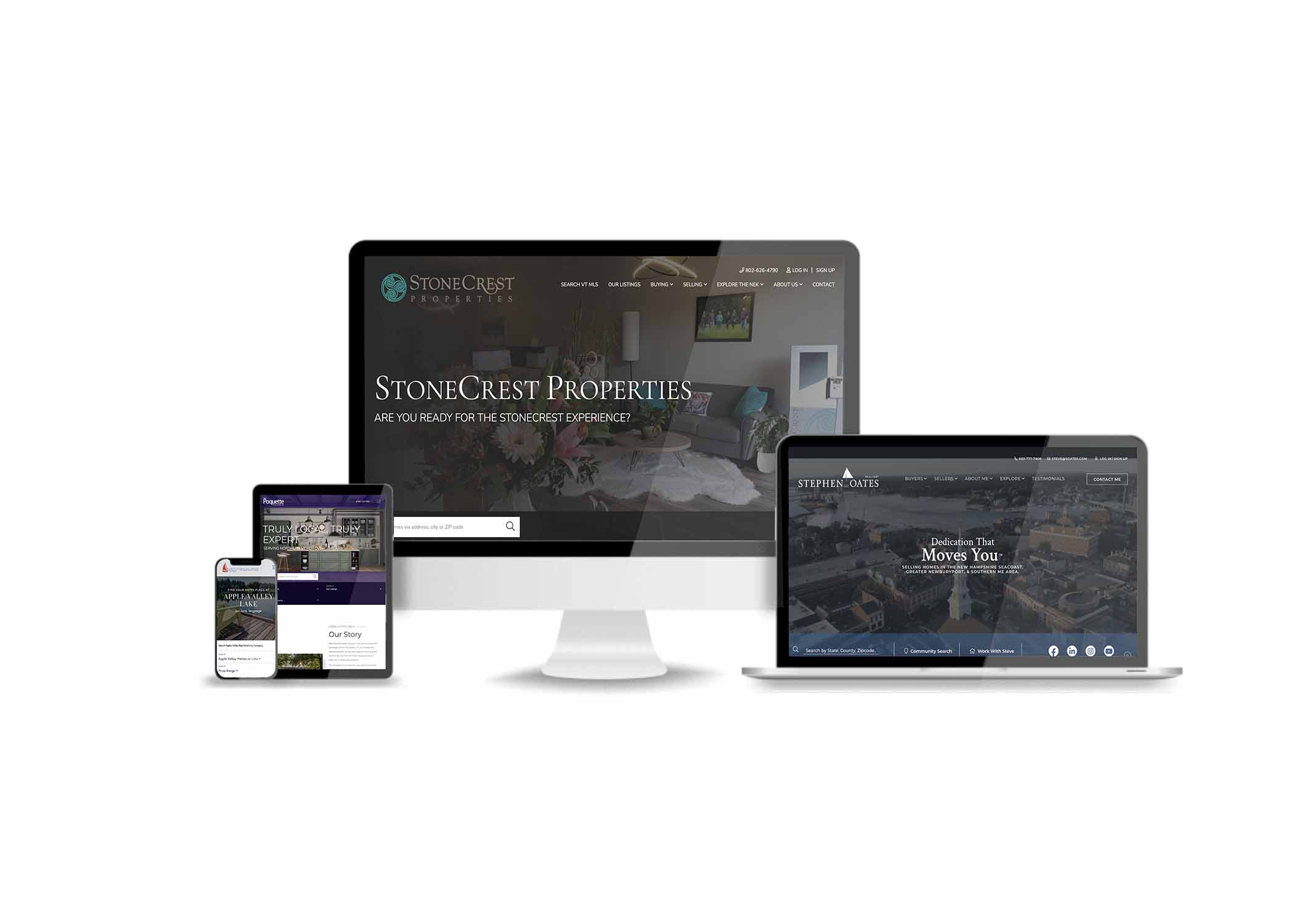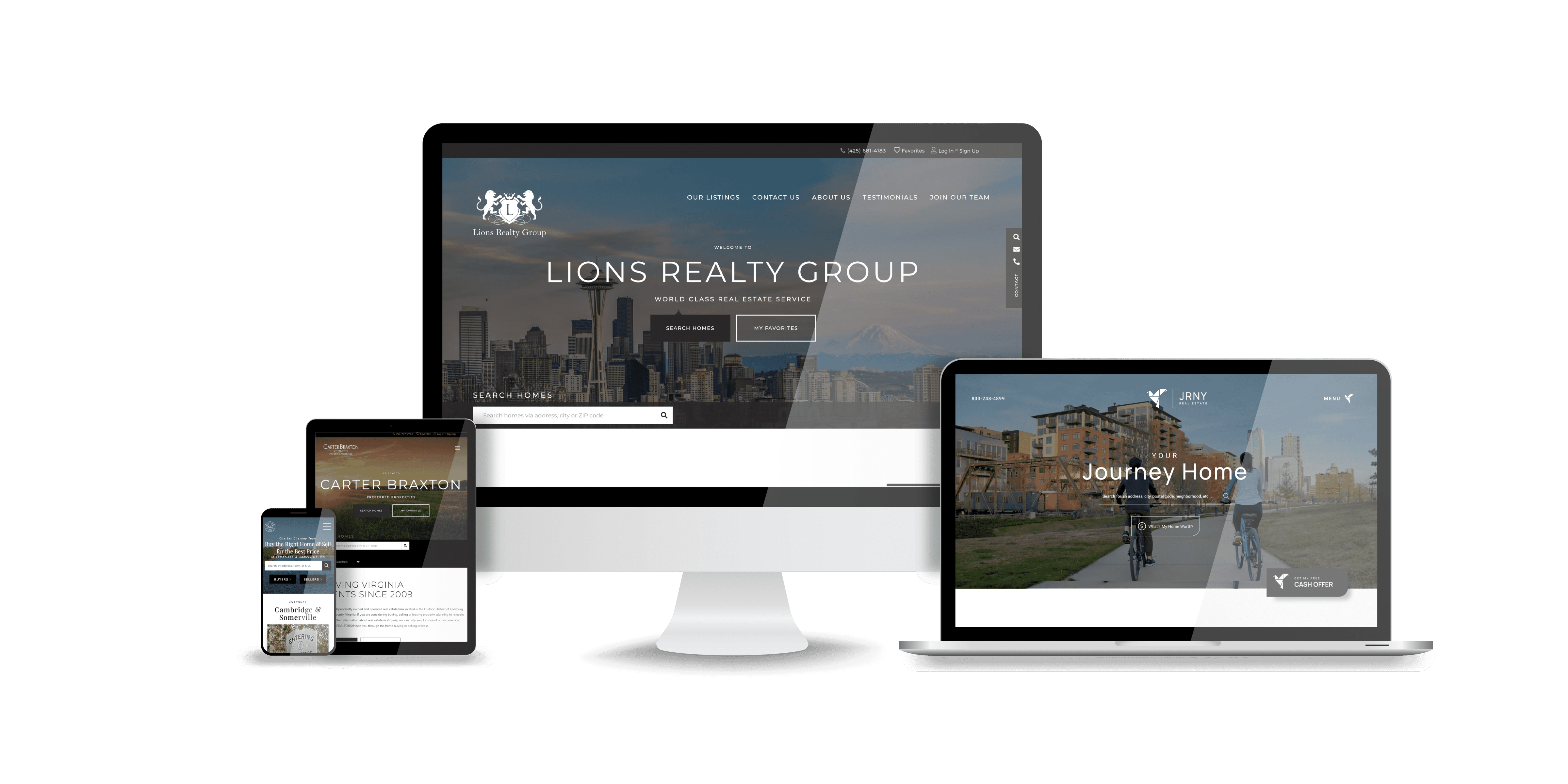Spring Clean Your Real Estate Website
The Spring market is quickly approaching, so, to get ready, we’ve compiled our top ten tips to Spring clean your website and make sure that oh-so-important first impression is exactly what you want it to be. Because Spring cleaning for websites should be just as important as Spring cleaning your closets.
Top ten tips to Spring clean your real estate website:
- Refresh your content
- Audit your analytics
- Make sure your website is super easy to use on mobile
- Audit your links
- Look for new internal linking opportunities
- Revisit your lead flow
- Spend time on your brand identity
- Ensure your company vision and mission are clear and compelling
- Renew your domain name
- Update and compress your images
1. Refresh your content
When’s the last time you read through all of the content on your website? A content refresh should involve proofreading, updating, and expanding your website’s content – everything from the text and images to the calls to action and links. Check for broken links or links that need updating since you first added the content. And look for opportunities to expand content on your most popular pages and for the areas of your business that you’re looking to grow most, such as getting seller leads.
2. Audit your analytics
Knowledge is power. Making sure your site is set up to properly track and analyze what’s working and what’s not is key to informing your business strategy and helping you achieve your growth goals. Our team of Google-certified marketers and analysts can help you get all of your tracking set up correctly so you can measure what matters, empowering you with the knowledge of what’s working and why, so you can do more of it.
3. Make sure your website is super easy to use on mobile
Google favors websites that are mobile-friendly, so much so that Google typically crawls websites using Android devices only. That means that if your website isn’t set up for success on any mobile device, Google is going to avoid showing you in search results. The good news is that with mobile responsive technology and adaptive capabilities, you can have a beautiful, high-performing real estate website that looks good regardless of how someone (or a search engine) chooses to access your website.
4. Audit your links
Similar to all of your website content, we often see clients launch a new website and build out certain sections only to have things change years later. Double checking link functionality is important (do all links click through to the pages or websites you want them to?), but also key is making sure your website navigation and links represent the most important parts of your business, including products and services, partnerships, and affiliations. You may have originally emphasized your commercial business, but gradually taken on more residential real estate sales. You may have featured local business partnerships that are no longer relevant or need updating. Even if everything looks good, taking time to double-check that your website leads your users where you want them to go and highlights what’s most important to you is always valuable.
5. Look for new internal linking opportunities
Just like your website should have search engine authority, meaning search engines see it as a relevant resource for specific searches, individual web pages should have their own page authority. One of the best ways to signal to search engines that individual pages through your site are highly relevant for the topics you want them to be is to ensure other relevant pages link to them. We recommend listing out the most important topics for which you want your website to rank, such as seller services in Chicago, and then listing out all of the important searches and keywords related to them (we can help with this!), especially those at the sweet spot of getting the most searches and having lower competition than others. Once you have this list built out, create a topic cluster on your website, or a group of web pages that link to each other.
Topic clusters are great for building search engine authority for real estate websites. The idea is you create one “hero” page or “money” page that serves as the center of your cluster and includes the broadest information about the topic and then you create several pages focused on more specific sub-topics, user needs, and/or related searches. Then you link from the sub-topic pages back to the hero page, boosting its SEO juice and making sure it gets top search engine ranking.
6. Revisit your lead flow
One of the most important things your website does is generate leads. Now is a good time to revisit how you’re managing those hard-won leads, to ensure you’re getting the most out of your marketing efforts. The most successful real estate companies have separate processes, sometimes even separate teams, set up to handle the different phases of new customer acquisition, which usually include lead generation, lead capture, lead scoring, lead nurturing, and lead hand-off, at a minimum. Because each customer’s home buying or selling journey is unique, they won’t all be ready to speak to an agent right away. And that doesn’t mean they’re not valuable. Understanding how to properly capture, qualify, segment, and convert your leads and implementing strategies like retargeting, email marketing, and more to stay top of mind with them will dramatically increase your profitability and lead to more sales. It’ll also help you identify who really is a tire-kicker and where to spend your time to get the greatest return.
7. Spend time on your brand identity
Your brand identity is what people think of you. It’s how you talk about your services, the experiences you want your customers to have, your company’s personality, and your vision, mission, and values, which usually work in tandem. Branding is both visual and experiential – it’s what people see when they interact with you or any of your content, and it’s the impression you leave on them. Your brand identity can be carefully crafted and will likely still take on a life of its own, so for that reason, it’s important to be really intentional about what you want people to think, feel, and know about you.
8. Ensure your company vision and mission are clear and compelling
If you have a great sense of who you are, but you fail to tell others about it, you haven’t successfully developed your brand. If you are great at connecting with others, but can’t easily tell them who you are, what you do, and why, you’re much more likely to be forgotten. So consider how you can best tell your story so it resonates because we know there’s a reason you got into the real estate business in the first place. There was a hope, dream, or pain point that motivated you. Knowing your ideal customers’ hopes, dreams, and pain points, and sharing yours with them, can be a hugely impactful way of creating a lasting connection and standing out.
9. Renew your domain name
Nobody’s website should go down because they forgot to renew their domain name. If you aren’t keeping track of your domain name expiration date, now’s a good time to double-check when it expires and if needed, renew it. If you are unsure when your domain name expires, you can contact your domain registrar or who sold you your domain name.
10. Update and compress your images
One of the most overlooked parts of a website’s performance is its technical SEO. Technical search engine optimization, or technical SEO, refers to website and server optimizations that help search engines crawl and index your site more effectively (to help improve organic rankings). Put simply, technical SEO determines how easy it is for Google to know that your site exists and for which searches your site is most relevant. Just like a car, technical SEO involves everything that’s under the hood of your website. One thing you can do right away that’s part of any technical SEO audit is to double-check that all of the images you’ve uploaded on new pages you’ve created, such as blog posts, are downsized and saved in a web-friendly format before they were uploaded to your site. Image size is one of the biggest factors in page load time and ensuring the image file sizes are small enough, and that image files are also properly named to represent what’s in the image, is a must in ensuring your website’s technical SEO is up to par.
Bonus!
After ensuring your real estate website is up to date, consider revisiting or adding an advertising strategy to supplement your strategy and help drive traffic.
- Local Services Ads
Make sure you are top of mind and top of the search page. Local Services Ads aim to show you are a Google-screened, reliable local expert for those searching for a realtor in their area. - Call-Ads
Get your phone ringing as the market warms up! We’ll run ads on mobile-only placements during your business hours for searchers in your market. Catch your leads while they are hot with direct calls and immediately make a human connection. - Facebook Listing Lead Generation Ads
Highlight your listings and generate leads with convenient on-platform forms when someone is scrolling through listing photos in their newsfeed. One of our newest strategies, take advantage of this low cost-per-lead high volume marketing play – grow your sphere and nurture them as we move into the spring market.
Get ready to make this your best Spring yet! Connect with one of our strategists to explore how we can help.











